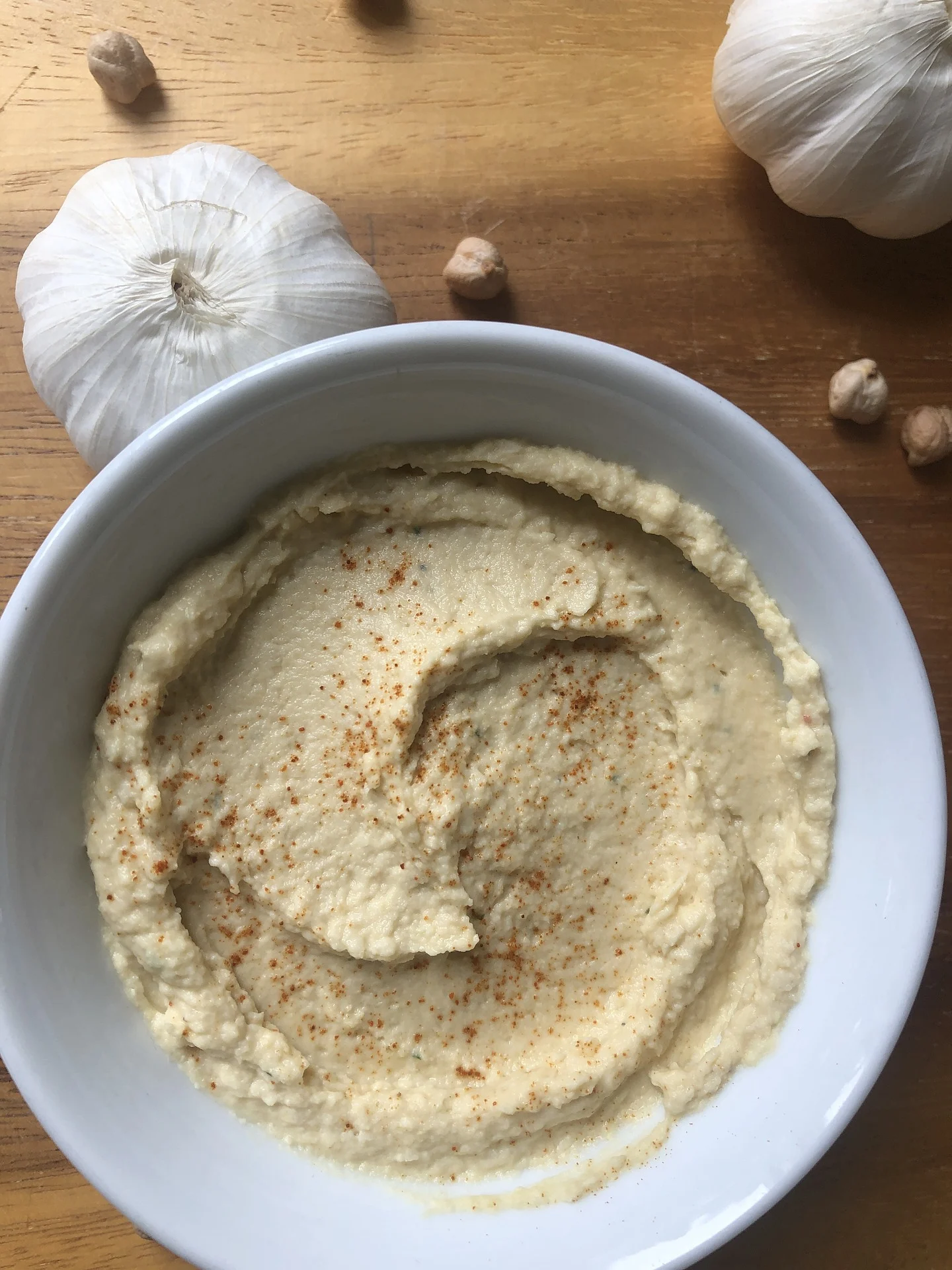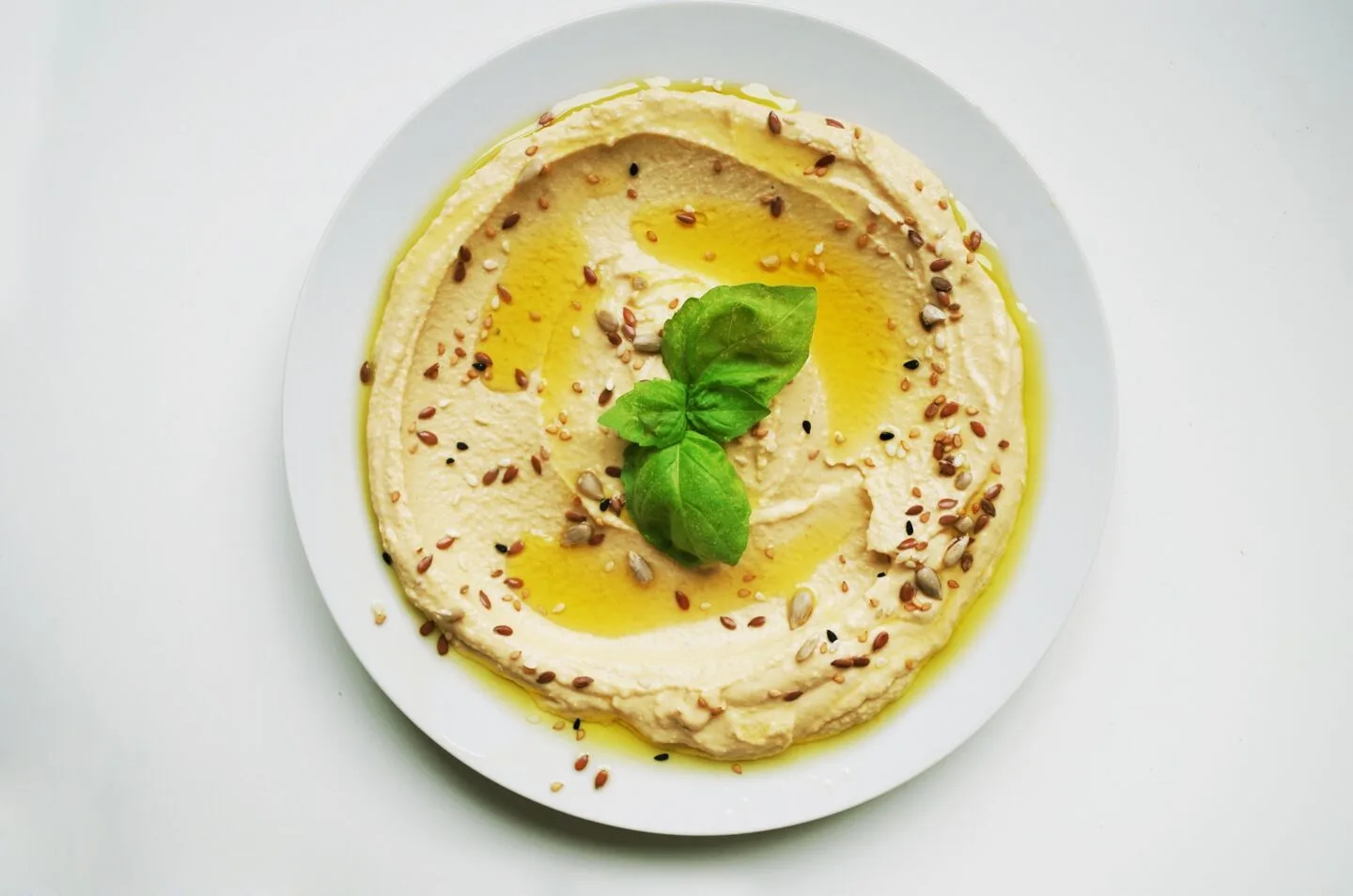As a popular and versatile food that’s beloved by many, it’s no wonder parents often ask me “can babies eat hummus?”. Hummus can be a great addition to your baby’s diet and can be served from 6 months onwards. Hummus is extremely versatile and can be served at any time of the day, including breakfast! However, before introducing hummus to your baby’s diet, there are a few things that you should consider.
Tips for introducing hummus to your baby’s diet safely.
Hummus is often loved by children and can form part of a balanced diet. When asking yourself when can babies eat hummus, it’s always best to wait until your baby has established a good eating routine – this is usually from around 6 – 8 months.
Although the answer to ‘can babies eat hummus?’ is a yes, there are definitely several things that you should know before offering it to your child. If you want to know how to safely introduce hummus to your baby, take a look at the points below that we will be covering in this blog post.
- Avoiding purchasing shop bought hummus
- Start slow and introduce additional ingredients gradually
- Avoid introducing spicier varieties of hummus
- Know the health benefits that hummus can offer your baby
Let’s take a look at each point in turn and discuss how to safely introduce hummus to your baby’s diet.

Avoid purchasing shop bought hummus – make your own instead
One of the first things you need to know when asking yourself the question, ‘can babies eat hummus?’, is that hummus bought directly from the store isn’t suitable for young babies and children. Store bought hummus contains far too many additives as well as a high sodium content which makes it unsuitable. If you want to start introducing hummus to your baby’s diet, it’s best to make your own at home. This is extremely simple and easy to do – it also leads us to the next point nicely.
Start slow and introduce additional ingredients gradually.
When you first wonder ‘can babies have hummus?’, you need to remember that babies have sensitive stomachs when compared to adults and, as such, they will not be able to digest chickpeas as well as you or I. It is advisable to start with a small portion of plain hummus when introducing this food to your child’s diet. As your baby starts to get used to the taste and texture, you can gradually start adding additional ingredients, such as garlic or lemon.
Avoid introducing spicier varieties of hummus.
Once your baby is content with eating flavoured hummus, it can be tempting to start offering them spicier flavours. Admittedly, although some babies and young children enjoy the taste of spicier foods, adding spice to the meals that your baby is eating can cause additional stomach upsets. When paired with fibre rich foods such as chickpeas, this can cause stomach pains and discomfort, therefore it’s a good idea to avoid combining spicy flavours with your baby’s hummus.

Know the health benefits that hummus can offer your baby.
Hummus isn’t only a tasty food choice, it’s also extremely beneficial for young children and babies. Hummus can be considered a superfood as its main ingredient is chickpeas. Chickpeas have a lot of beneficial properties, including being rich in iron, protein, vitamin B6, vitamin E, and potassium. Additional ingredients, such as garlic, can also add extra nutrition.
Which common hummus ingredients can cause allergic reactions?
There is often concern regarding how can babies eat hummus when so many of the ingredients can cause allergic reactions. It is possible that your baby may have an adverse reaction to eating hummus. Hummus is usually made from tahini, a paste that’s made from sesame seeds. Seeds, including sesame seeds, are one of the most common foods that can cause allergic reactions. Hummus is also made using chickpeas. Although chickpeas are not a common allergen, they are still able to provoke allergic reactions in people. Additionally, additives and flavourings such as garlic, lemon, or pepper can also cause adverse effects.
Due to these allergy possibilities, it’s a good idea to introduce foods that could cause an allergic reaction one at a time, with several days in between, to ensure that you will know which food has caused a reaction if you do get one.

How to serve hummus to babies.
If you’re ready to give hummus a go, it’s a great idea to offer it alongside foods that you already know your baby loves and can consume without any adverse issues. Offering hummus alongside simple foods, such as carrots or crackers is a great way to ensure that any physical effects that could be signs of allergies are easy to spot. Here are some of our favourite ways to serve hummus:
- Veggies sticks (carrots, cucumber, peppers etc) with a hummus dip
- Pita bread, crackers, or baby safe crisps with hummus dip
- Spread hummus on sandwiches
- Served with your baby’s favourite meal, for example, Broccoli and Cheese Bites
Conclusion
When asking can babies eat hummus?, it’s clear to see that from the age of 6 – 8 months onwards, hummus is considered a safe food for them to eat. However, with that being said, there are certain factors to consider regarding the consumption of hummus in young babies. The amount of hummus should be limited to ensure babies do not suffer from digestive issues and shop bought hummus should be avoided due to high levels of salt and preservatives. Additionally, shop bought hummus contains common allergens, including tahini, therefore it’s best to introduce hummus slowly and, if possible, to make your own tahini-free hummus recipe. Don’t forget to take a look at the rest of our blog posts, including our baby led weaning recipe archive for fun, tasty, and healthy first food choices.
